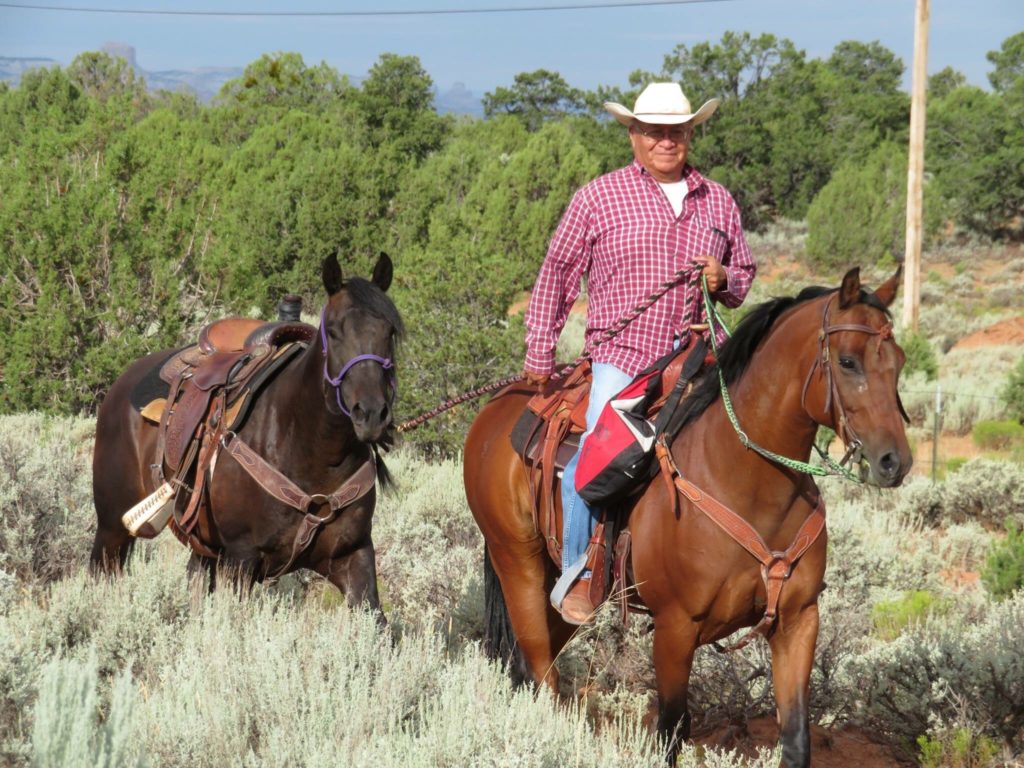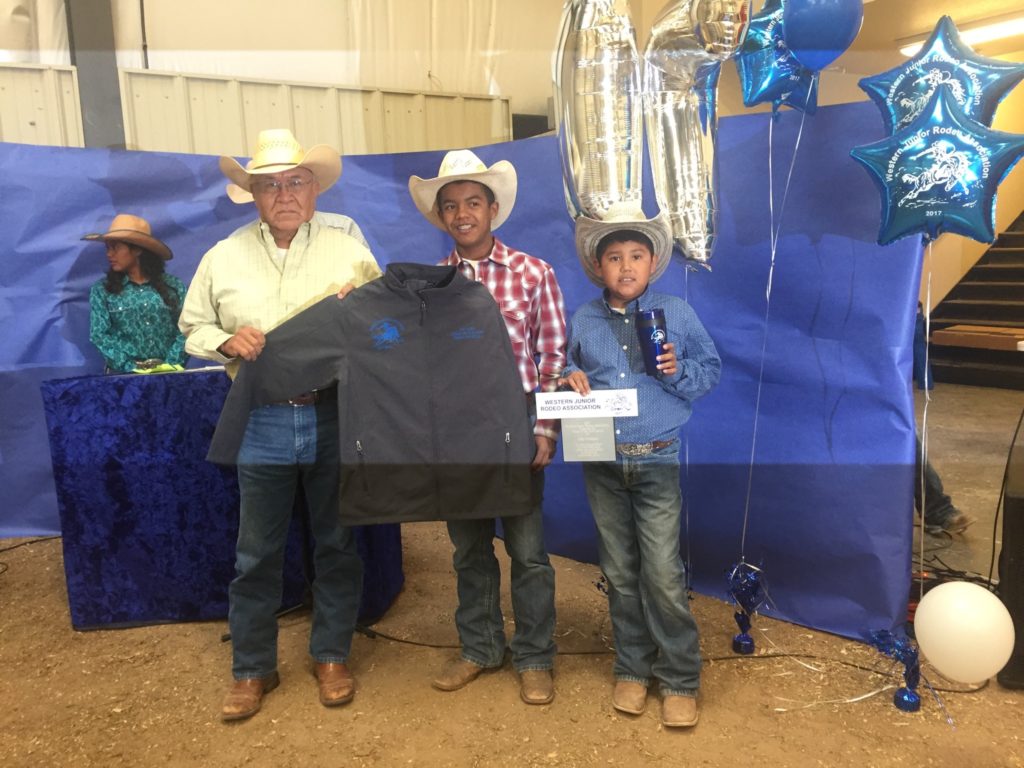
Gray Ferrel – Federally Recognized Tribal Extension Program (FRTEP) University of Arizona
The Navajo Nation consists of 27,000 square miles in the states of Arizona, New Mexico, and Utah. Geographically, it is the largest Native American reservation in the U.S. with over 173,000 Navajos living on the reservation. The Nation has only one incorporated township and most homes do not have electricity, running water, or telephones. A major portion of undocumented income comes from family-based agriculture; and while poverty is an issue, the Navajo people enjoy a rich cultural, spiritual and daily life based on small-scale farming and ranching.
In the Western Navajo Agency, FRTEP agent and program director Gray Ferrel’s priority areas are livestock management/natural resource management, youth development, healthy living, farming and home gardening. He plays a vital role in providing Navajo producers with information to expand their knowledge so that they can re-engage in traditional practices of farming – growing traditional crops with methods that ensure success in the way of making a good living and to utilize this food for their own health and well being. Families work together to feed themselves versus making a profit. Produce is not exchanged on a commercial scale, but with other families. Some engage in small scale sales – mostly through farmers markets and roadside stands.
Impacts
Youth Development: Youth specialists for Navajo have developed a program to work with youth (with over 170 members in one association) that do gymkana and junior rodeo events. The University of Arizona brings in specialists in equine management, care and nutrition; as well as teachers to show kids how to ride properly and to exercise and run barrel racing correctly. Youth development endeavors with a strong focus on skill development are one of the major achievements of this program.
“We hope to instill life skills, habits, responsibility for nutrition, animal husbandry and physical activity.”
– Gray Ferrel
Navajo Beef Program: Farrel, along with a FRTEP colleague – Gerald Moore, recruit, educate and certify producers for this program. Over 70 producers are certified annually as a result of training and education on BQA guidelines, record keeping, marketing and range management. Certifications continue to increase as there is now opportunity for high school students to achieve certification through their FFA programs. Because students’ families own cattle, a goal is for them to teach parents how to improve beef quality, importance of vaccination, herd genetics, and other best practices.

Many Navajo elders are not able to speak or understand English, so many presentations are delivered in Navajo. Ferrel is a fluid speaker of Navajo and is able to translate cutting edge information from the university to a grass roots level. He encourages traditional practices in all areas of his programming and helps to promote traditional crops such as blue corn, Indian corn and squash. Healthy by products such as blue corn meal and ground up kneel down bread (corn ground and baked under the earth) are instrumental for fighting the effects of diabetes. The Navajo Nation Special Diabetes Prevention Program works in partnership with FRTEP to build awareness and improve the health of community members.
FRTEP is recognized as a valuable resource providing education and knowledge to producers.
Looking to the future – one of Ferrel’s primary goals is to increase the number of producers certified under the Navajo Beef program that can benefit the Navajo people. He has partnered with Charo sheep producers to explore creating a similar brand that would highlight wool quality and lean meat. Drip irrigation is a technology that he would like to introduce to family gardens; as well as expanding resources for Navajo bee keepers to be able to direct sell honey.

The scope and direction of the Western Navajo Agency FRTEP reflect what producers and community members want. Extension on the reservation makes resources, training and education available; and every dollar is leveraged to benefit tribal producers and tribal members.
